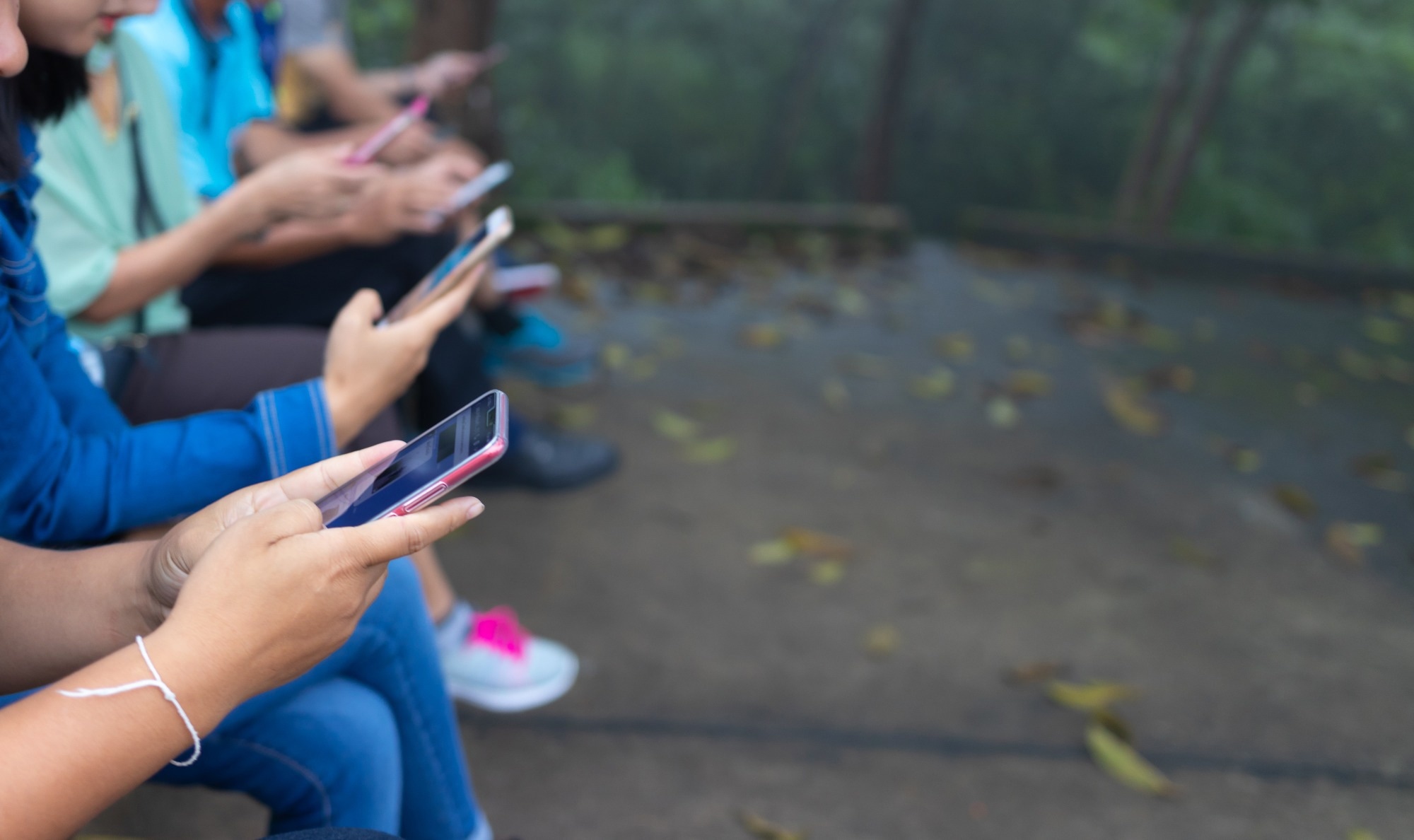Researchers found that while basketball and swimming offer some cognitive benefits, footbike training uniquely boosts both focus and self-control, making it the top exercise for tackling internet addiction in students.
 Study: Effects of three exercise interventions on inhibitory control in college students with internet addiction: a functional near-infrared spectroscopy study. Image credit: frank60/Shutterstock.com
Study: Effects of three exercise interventions on inhibitory control in college students with internet addiction: a functional near-infrared spectroscopy study. Image credit: frank60/Shutterstock.com
A new study published in Frontiers in Psychology reveals that footbike training can significantly improve neural inhibitory control in college students with internet addiction. Such improvement can potentially help students suppress their addictive behaviors and resist distractions.
Background
The rapid growth of internet services has stimulated a rising internet addiction, becoming a major health concern. This is especially true among college students, whose brains and social skills are still developing, and whose self-control is not yet fully mature.
Existing evidence indicates that internet addiction can significantly impair neural inhibitory control in adolescents, leading to the emergence of psychological symptoms, such as anxiety and depression, and a reduction of academic performance and social functioning.
Internet addiction has been linked to inhibitory control deficits in college students. Exercise interventions, such as cycling and running, have been found to prevent internet addiction-related cognitive impairment by improving inhibitory control.
Inhibitory control is a core cognitive executive function with two subcomponents: response inhibition, which allows a person to stop planned action, and interference inhibition, which allows a person to resist distractions. Lack of control in both subcomponents can significantly heighten a person’s susceptibility to developing addiction.
At the Graduate School of Shandong Sport University, China, Zhimin Nie and his colleague Hainan Fan recently evaluated the impact of different exercise interventions on distinct inhibitory subcomponents in college students with internet addiction.
Study design
The study included a total of 120 undergraduate students, who were divided into three groups depending on their levels of internet addiction, i.e., moderate-low, moderate-high, and severe internet addiction.
The participants in each group were randomly assigned to four categories: footbike training, basketball training, swimming training, and control (no training). The participants in each training group underwent an 8-week intervention program, with each session lasting 45 minutes and administered twice weekly.
Standardized cognitive tasks were carried out pre- and post-intervention to assess the participants' response inhibition and interference inhibition efficiency. Functional near-infrared spectroscopy of inhibition control-related brain regions (dorsolateral prefrontal cortex, frontopolar cortex, and orbitofrontal cortex) was performed during inhibitory control tasks for neurofunctional monitoring.
Key findings
The study identified footbike training as the most effective exercise modality in improving inhibitory control among college students with internet addiction. This intervention significantly improved both response and interference inhibition efficiencies and robustly increased activation of the dorsolateral prefrontal cortex (DLPFC) and frontopolar cortex.
Among other modalities, basketball intervention significantly improved interference inhibition and most strongly activated the orbitofrontal cortex. However, this intervention's impact on response inhibition was meaningful but smaller than that of footbike or swimming.
Regarding swimming intervention, the study found significant improvements in response inhibition and strong activation of the DLPFC, but no significant benefits for interference inhibition. While DLPFC activation was strong, the authors note that this neural effect did not translate into improved interference inhibition performance.
Study significance
The study identifies footbike training as an optimal intervention for improving dual inhibition deficits in college students with internet addiction. It also highlights the effectiveness of basketball training in improving interference inhibition control among students and swimming in strengthening response inhibition. Distinct neural activation patterns observed across exercise types reveal dissociable neurocognitive pathways for inhibitory enhancement.
Footbike movement requires dynamic balance maintenance, which demands precise postural control through coordinated activation of core trunk and lower limb muscles for whole body stabilization. During such dynamic movement, athletes need to continuously adjust their center of gravity, enhancing neuromuscular and visual precision in the brain. Such integration of multisensory neural pathways during footbike training may help improve dual inhibition deficits associated with internet addiction.
Existing evidence indicates that footbike training increases activation of the frontopolar cortex during cognitive tasks, and the current study findings also suggest the same. This brain region is involved in complex decision-making and the regulation of goal-directed behaviors.
Increased activation of the frontopolar cortex is also directly associated with postural stability maintenance, rapid interference response, and improved motor precision, justifying the observed robust improvements in inhibitory control capabilities among college students with internet addiction.
Regarding basketball training, the study reports significant improvements in interference inhibition function, and a concomitant activation of the orbitofrontal cortex, a brain region involved in strategic decision-making. This neural modulation effect may be associated with basketball’s open-skill team dynamics, which require real-time integration of multidimensional information, including teammate positioning, opponent defense anticipation, and score pressure.
Overall, the findings reveal that footbike, basketball, and swimming improve response inhibition, while both basketball and footbike training significantly increase interference inhibition through distinct neural networks. Basketball training strengthens strategic networks through orbitofrontal cortex-mediated decision optimization, while footbike training shapes interference-resistant circuits through frontopolar cortex-dependent cognitive control. Basketball training also upregulates dopaminergic signaling, which helps prevent addiction through reward system recalibration.
These findings highlight the significance of distinct exercise modalities in improving dual inhibition deficits through distinct brain networks, providing a neural framework for developing personalized interventions for addiction. The authors further propose that precision exercise prescriptions, potentially combined with real-time neurofeedback, could be used to tailor interventions to individual neurocognitive profiles.
Download your PDF copy now!